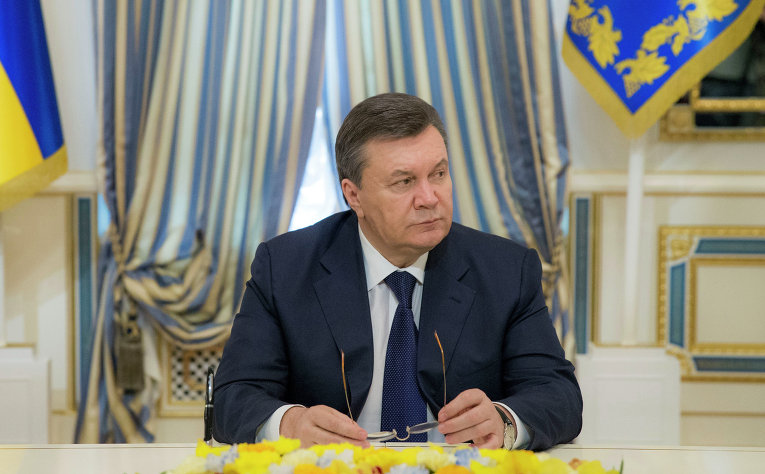MOSCOW, April 11 (RAPSI) – The Obolonsky District Court in Kiev will begin hearing a case against former Ukrainian president Viktor Yanukovych, who stands charged with treason, on May 4, according to the schedule of hearings published on the court’s website.
On January 30, Ukraine’s Prosecutor General’s Office announced that investigation into Yanukovych had been completed. In March, prosecutors submitted the case to the Pechersky District Court in Kiev, but the court refused to consider it. An appeals court later transferred the case to the Obolonsky District Court.
In late December, Ukraine’s Prosecutor General Yury Lutsenko read charges against Yanukovych in a court through videoconference link. Later, the Prosecutor General’s Office filed a motion to initiate trial of former president in absentia.
The Ukrainian prosecutors accuse Yanukovych of the same crimes allegedly committed by former “Berkut” officers: using fire arms against protesters in Kiev in late 2013 and early 2014. However, his case is subject to separate criminal proceedings.
The political crisis erupted in Ukraine in late November 2013 after the government announced that it had halted the country’s association with the European Union. Protests, called Euromaidan, swept across the country and led to violent clashes between armed activists and law enforcement officers in late 2013 and early 2014.
Fighting between radical anti-government protesters and police culminated in mass riots on February 18, 2014. On February 20, fire was opened on protestors. Over 100 people died those days on both sides, according to RIA Novosti.
Ukraine's authorities claim "Berkut" officers to be blamed for the shootings.
Russia says that militants of Right Sector, a far-right Ukrainian group banned in Russia, may have been behind the attack.
Yanukovych said he did not give order to law enforcers to use fire arms against protesters when testifying about the events in Kiev.
Ukraine went through a regime change on February 22, 2014, when President Viktor Yanukovych fled the country and Euromaidan activists rose to power in Kiev.
In early 2015, it was reported that the Ukrainian Prosecutor General’s Office brought charges against Yanukovych in absentia and addressed Russia with a request to extradite the former president. Yanukovych is suspected of organizing a criminal group, abuse of power, embezzling state property and other offenses. The Russian Ministry of Justice then claimed he had not received any documents on extraditing Yanukovych to Kiev.
On June 6, Russia declined to extradite Yanukovych, according to the Prosecutor General’s Office’s spokesman Alexander Kurennoy.
A motion for provisional arrest and detention of Yanukovych filed by Ukraine was considered and dismissed in accordance with Article 3 (Political offences) of the 1957 European Convention on Extradition, he told journalists. Ukrainian authorities were informed about this decision, Kurennoy added.



